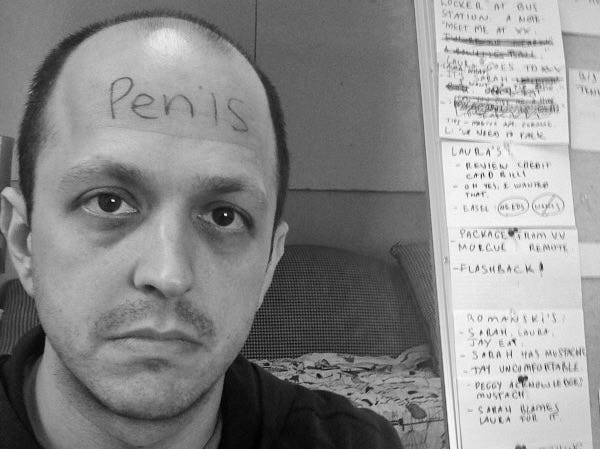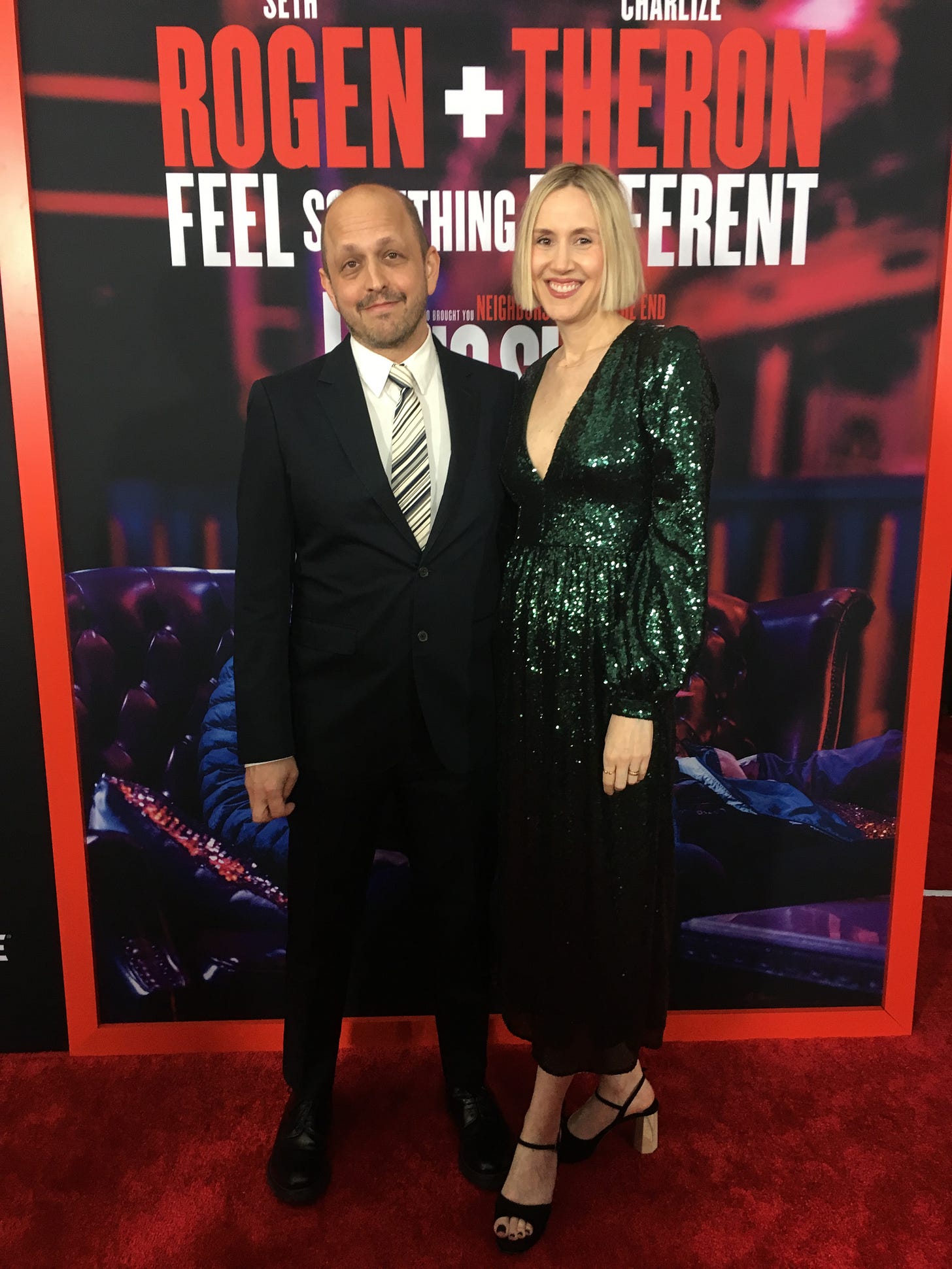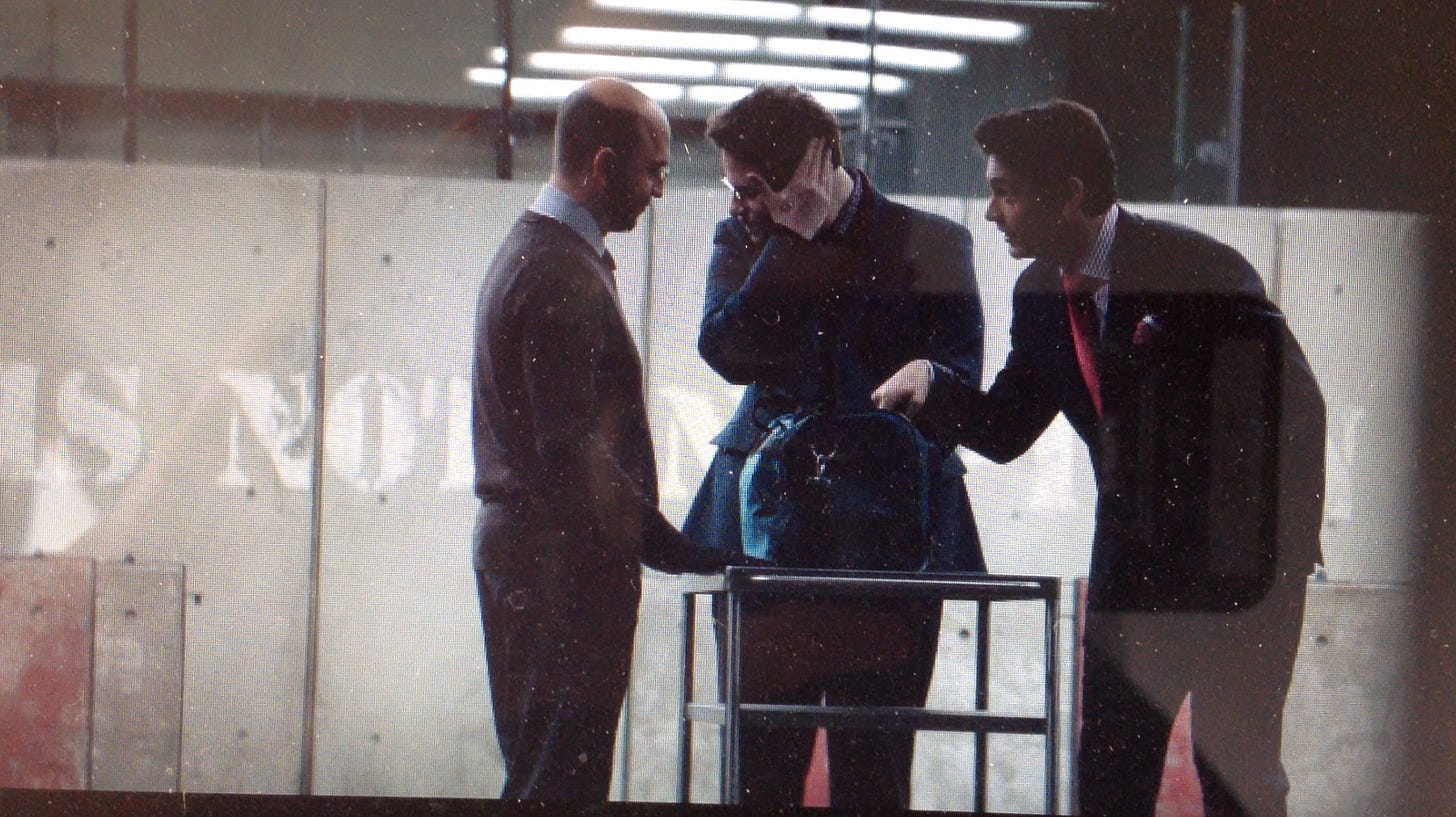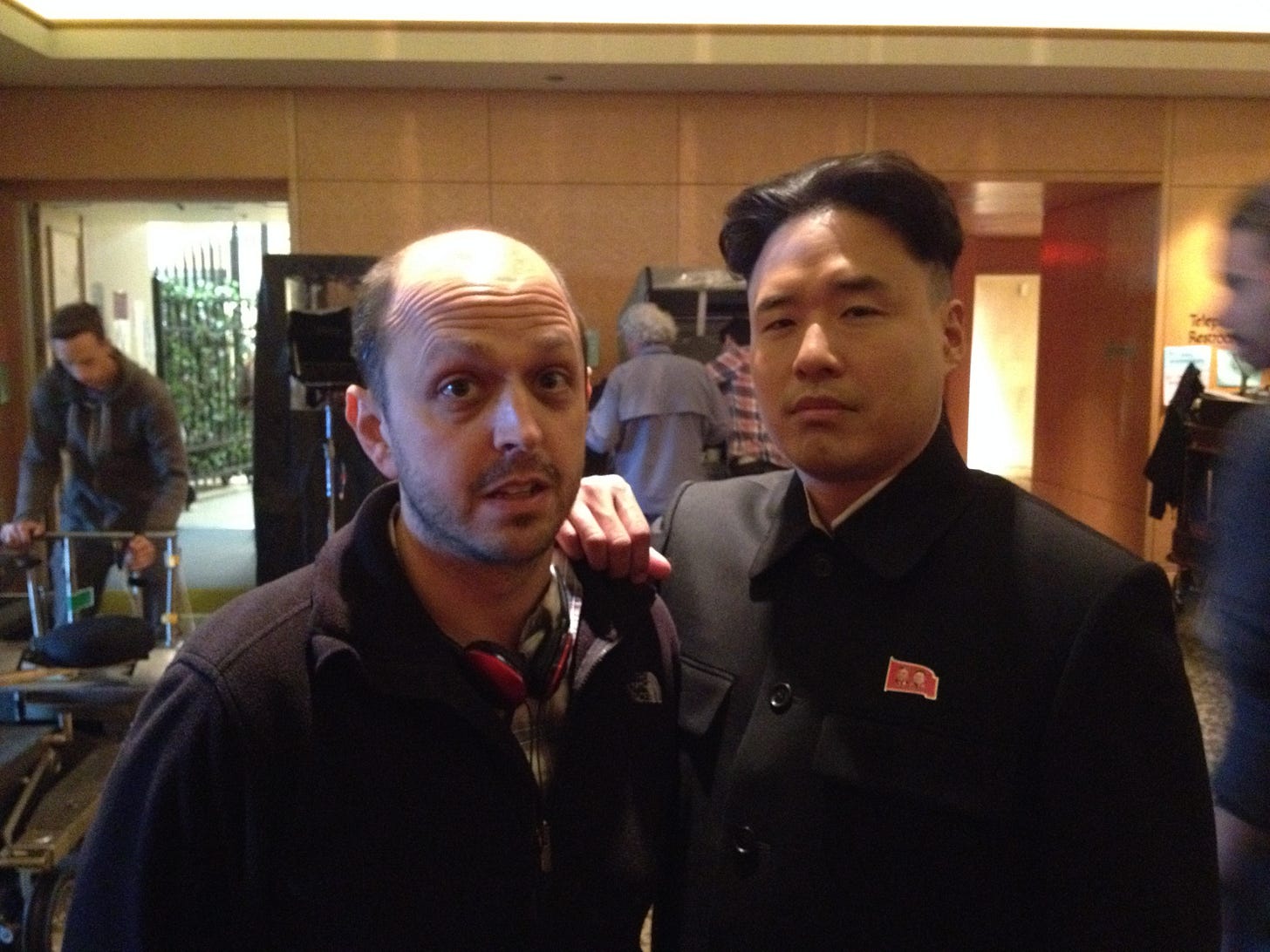Q&A: Screenwriter Dan Sterling Might Be Losing His Edge
The 'Animal Control' co-creator and showrunner discusses the state of comedy, the challenge of pushing boundaries in such a culturally divisive era, and how his own approach to jokes has evolved
I met screenwriter Dan Sterling while in Cabo for a mutual friend’s bachelor party weekend. This might sound super sexy cool — or however you want to more maturely describe it — except for the fact that my memory of Dan on that trip was of him hunkering down in his hotel room to nail a deadline while the rest of us lounged around the pool talking new fiction, debating politics, and slurping down colorful drinks. We’ve often run into each other in the years since, particularly at gatherings of mutual friends, but I’ve never shaken that first impression of him as someone completely dedicated to his work. Maybe that’s because this dedication to his craft shows up on my screen so often — most recently as the co-creator and showrunner of the hilarious sitcom “Animal Control” (it’s third season premiered last month).
In addition to “Animal Control”, Dan has written on “South Park”, “The Sarah Silverman Program”, “Girls”, “The Office”, and, a personal favorite, “The Last Man on Earth” — which he served as the showrunner on, too. To be clear, the list is much longer than this; I’m just listing a few highlights.
In the feature department, he’s co-written two films, both starring Seth Rogan amongst others — The Interview (2014) and Long Shot (2019). You might recall The Interview for the controversy that surrounded its release. Kim Jong Un, North Korea’s fascist grand poobah, used a proxy group to threaten to blow up theaters that played it and then hacked Sony to put an exclamation point on how much his dick-tatorial feelings had been hurt. One can only assume Kim didn’t care for the plot, which saw Rogen and James Franco play journalists recruited by the CIA to assassinate him. I don’t think the film ever got its appropriate due, given the controversy produced by all this; it’s as madcap and satirical as Long Shot, though Long Shot, which also stars Charlize Theron, can also be called one of the better and charming romantic comedies of the past decade (seriously, I love this film).
Dan is a very welcome addition to this artist-on-artist conversation series for two reasons. One, I’ve long wanted to get to know him better. And two, I don’t get to talk to nearly enough screenwriters primarily focused on making people laugh their asses off. I had a lot of questions about comedy in general, pushing boundaries on screen in such a culturally divisive era, and how his own approach to jokes has changed as he’s gotten older. I know I learned a lot from our chat, and I hope you’ll be able to say the same when you’ve finished reading it. Be sure to jump into the comments to share your thoughts on Dan’s observations about the state of comedy today.
COLE HADDON: Dan, it’s so good to be having this conversation with you. It’s been far too long since we were in the same room together, my friend. Okay, let’s start with a small subject, that being censorship in comedy, both external and internal. You’ve worked on a lot of shows that courted controversy and you wrote a film that North Korea thinks was a declaration of war against them. But social media and what we call cancel culture, good or bad, seems to have made it more perilous than ever to push boundaries in a time when society desperately needs truthtellers. Am I imagining that comedy is harder than ever? And if so, how does that manifest in your mind as you work? Do you find yourself being self-censorious in a way that, perhaps, you never were before? In other words, let’s just skip the foreplay and start this conversation at 100mph.
DAN STERLING: For me, the biggest battle with censorship will always be between me and my own mind. I can expound upon that after addressing your question pertaining to cultural censorship. Over the years, especially earlier in my career, I specialized in provocative or “edgy” kinds of comedy – pushing (or trying to push) the envelope in risky topics like sex, drugs, race, politics, religion, and the bathroom. I took pleasure in being known for that kind of comedy. And even when network censors would harass me to dial back certain kinds of language or imagery, at some level, I enjoyed – I think I can now admit – battling them. Especially when it came to the perennial double standard in Standards & Practices departments, where it’s okay to use the clinical words for male genitalia, but words like vulva and labia and clitoris are too graphic.
But looking back on some of my work, like most people, I have a few – truly just a few – regrets. Sometimes, in an effort to be edgy and satirical, I made choices that now look insensitive or even entitled. I felt at the time these choices were okay because I was making them in pursuit of satire from the politically correct vantage point – for Hollywood, needless to say, this means progressive.
So, some things I used to delight in, I no longer would be able to do, nor would I feel okay about doing them. Movements like #MeToo and BLM and the post-George Floyd level of racial sensitivity that has impacted Hollywood – these things have affected my thinking, as well. I despise the word “woke”, but like it or not, I do, as defined by woke people and not Ron DeSantis fanatics, fit the definition.
CH: Before you go on – and I suspect you have a lot more to say on this subject – I want to zero in on your more recent awareness of the satisfaction you’ve taken from battling network censors, which I know are often ridiculous in their requests. I don’t want to make any assumptions, but I know I take considerable – and at times perhaps self-destructive – pleasure from taking idiots or what I perceive to be idiocy to task. Is that what you’re describing? And if not, can you describe the motivation behind it because I expect, as we go on, it will inform some of your work over the years.
DS: Yes, I think I enjoyed taking – what I perceived to be – idiots to task. Especially when it meant challenging what I viewed to be a culturally regressive standard – for example, women’s anatomy being X-rated while men’s anatomy is not. My righteous indignation was also frequently activated by toxic laziness from S&P departments. That’s to say, they’d flag lots of things for which there was no legal basis to censor. Things that crossed no lines of FCC broadcast standards, no copyright or intellectual property laws, but just things that might irritate a viewer and cause a letter to be written. I’m sure I’m in good company with my exasperation at the great menace of the “angry letter”. I often felt that they flagged great jokes or bits because they just didn’t want to get letters or complaints. But at the same time, from the creative executives, I was always getting the directive to be as “edgy” and provocative as we could legally get away with. Being older now, I realize this is just the way it is and that it’s not necessary to let the censors make your blood boil. Most notes I’ve had from censors that really bothered me, I’ve been pretty easily able to get them to back down.
CH: Getting back to the subject of how comedy has changed. Can you talk about things you can’t do now?
DS: There’s the ultimate example of “things you can’t do now”, which is Robert Downey Jr.’s character in Tropic Thunder. Totally hilarious, totally not offensive – in my view – and it would have been a shame for Downey Jr. and for the world had that not been allowed to exist. And there are surely brilliant things that will never come to fruition because of the current cultural climate. But I don’t particularly lament that - in part maybe because I don’t have a brilliant concept like Tropic Thunder burning a hole in my pocket.
The reason we’re where we’re at has everything to do with the advent of social media, and the spasmodic way in which American reckons with its historic cultural sins and wounds. I can’t control these things. I don’t tend to complain much when the network gives me notes on a script. It’s a pain in the ass, but somehow the challenge – and the narrowed parameters – always seem to force me to do something better. I suppose it’s similar to the “notes” comedy writers are now getting from the culture, if you will. Am I being Pollyanna-ish about this? Probably. But I have to. As I said, the main censor is in my own head, and I have to direct all my energy into knocking down those walls. I don’t have the bandwidth to rail against cultural parameters that I can’t do anything about.
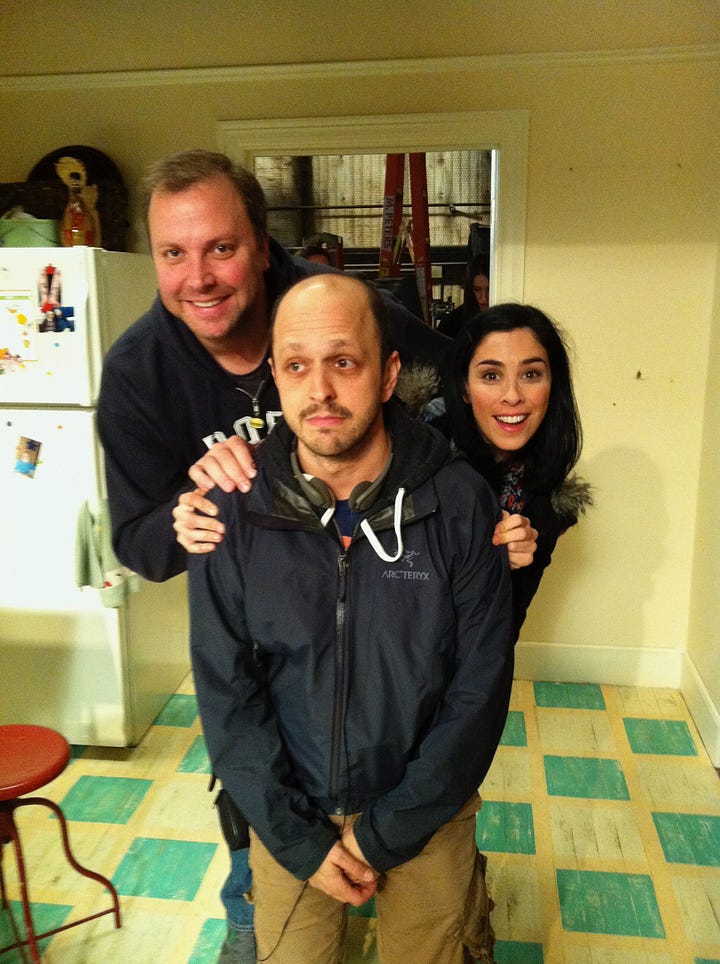
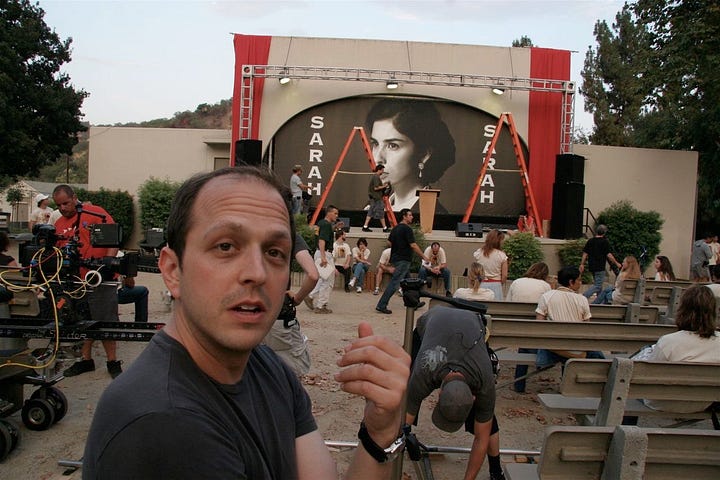
CH: I’d love to dig into the censor in your head a bit more, mostly because I haven’t spent nearly enough time discussing what this feels like for other artists. And in our cases, we write very different things. Not that I don’t write funny shit or test a lot of boundaries – there were a lot of lines toed in my novel – but my concern is generally if I’m avoiding a story that scares me rather than a joke or something in that space. I’m scared about not being the authentic me. What is it like inside your head in this regard?
DS: Well, the censor in myself to which I referred, that pertains mostly to the blue-sky phase. Would this be a good idea for a movie? Nah, someone’s probably already done that. Or, no one else would find that interesting. Or, most commonly, no one would buy that – at least not without elements attached. Or, no one’s doing X kind of movies/shows these days. Or, too many people are already doing X kind of movies/shows these days.
But in considering my answer to this question – the part about being your authentic self, it’s made me realize just how long it’s been since I’ve written something that was really personal to me.
CH: Really?
DS: Well, written something that was then produced. I mean, in anything I write, I draw as much as possible from my “self”. But in more recent years I’ve had a lot more IP-based projects in folio, as well as biographical dramas. In such things, like any writer, I’m drawing on my life experience and how that has shaped my worldview. But I wonder if, in any of these more recent projects, some viewer, who didn’t know I wrote the piece in question, would point to the screen and say, “That’s got to be Dan.”
I co-created a series for Fox – which is still on – called “Animal Control”. That would have been the most likely place to see “a Dan” character. The lead we originally shaped to be something of my alter-ego. But then we cast it with Joel McHale who is a major star and a personality, and things migrated and morphed, as they inevitably do. This project was never intended to be a personal statement. The one-line idea of it was brought to me by my two partners.
CH: It sounds like it was much different earlier in your career.
DS: For a long time, at least in the network sitcom world, what they really wanted from me was my authentic self. If I came in with a pitch for a premise that didn’t seem attached to anything from my own life, they’d prompt me to come back to them with something more personal. Which would require me to go back and think, “Okay, what’s really going on inside me, and how can I dig that out?” That can be a difficult excavation. Not because I’m afraid to face things or to look at myself. But when you’re trying to come up with, say, a workplace comedy, where the assignment is to have a collection of funny characters in a format where there could easily be one hundred comedic situations – where does your own self even figure into that?
CH: I’ve never framed a series like that in my head, but, wow, yes, I understand that challenge.
DS: It’s an engineering assignment – or so you believe - not a journey into your own soul. But then when it’s time to try to write these characters and get a feel for their voices and their behavior patterns, you have to find some slice of yourself to put in them, even the ones designed to be annoying or clueless or bumbling or cruel.
Of course, when it comes time for production, sometimes you have to do the opposite of digging into your soul. You, in fact, have to stand back and watch it get buried. The example for me is a movie I wrote on spec – it was a romantic comedy, but it was inspired by some true and very painful events in my life. Seth Rogen quickly signed on as a producer and star, but it took quite a while to put the right package together. Nine years later, when it actually went into production – and it had a female lead, Charlize Theron, with opinions and preferences and a studio investing scores of millions of dollars – a good deal of what was most authentic to me had to be materially altered or completely excised.
But this is totally expected and understandable. Charlize was excited about doing this movie, but she was also apprehensive about it. The role was asking her to be very vulnerable as a character, and in a comedic – but also earnestly romantic - framework, which was a pretty big departure for her at the time. She and her producers felt it was important during the pre-production rewrite process to have a female writer participate.
CH: When I was a kid, my father taught me a lesson about doing dangerous shit. Some things, the reward just isn’t worth that risk, so what’s the point? Other things, that risk might be the price to pay to, say, enjoy the most spectacular view of your life. Do you have an internal metric in which the risk of a joke is weighed against, say, the narrative or even social reward?
DS: Well, if we’re going to talk about jokes and their associated risks, there’s a whole separate answer I could give that would go down the rabbit hole of The Interview. But rather than do that here, I can talk about my current approach to jokes. At this time in my life, I don’t feel the need to make jokes that are rooted in edgy social commentary. I’ve done a lot of that in my career, and it’s not my main mission anymore. And I still do it here and there on X, but ever since they took my blue check away, I’m merely typing words into a void on that platform.
DS: For my professional purposes, jokes now are best when they’re either pithy commentaries on the state of the human condition or, more commonly, when they’re in some way revealing of – or comments on – the specific character making the joke or the character who is the target of the joke. When opportunities arise for social commentary-type joke that might be provocative, but also possibly offensive – deservedly or undeservedly – to some segment of the population, the test is, do I really need this joke here, or is the script funny enough without it, or is there another joke to do here instead of this potentially problematic joke? So, I don’t know, I certainly sound very “tamed” when I say all of this, don’t I?
CH: I don’t know. Does “tamed” have to be the word? We all evolve. Life happens to us. I don’t want to say you’ve “grown up”, but life happened to you and how you creatively express yourself has changed like you have – no?
DS: Fair enough. Let’s say I’ve evolved. It sounds way better than “tamed” or “fatigued” or “capitulated.”
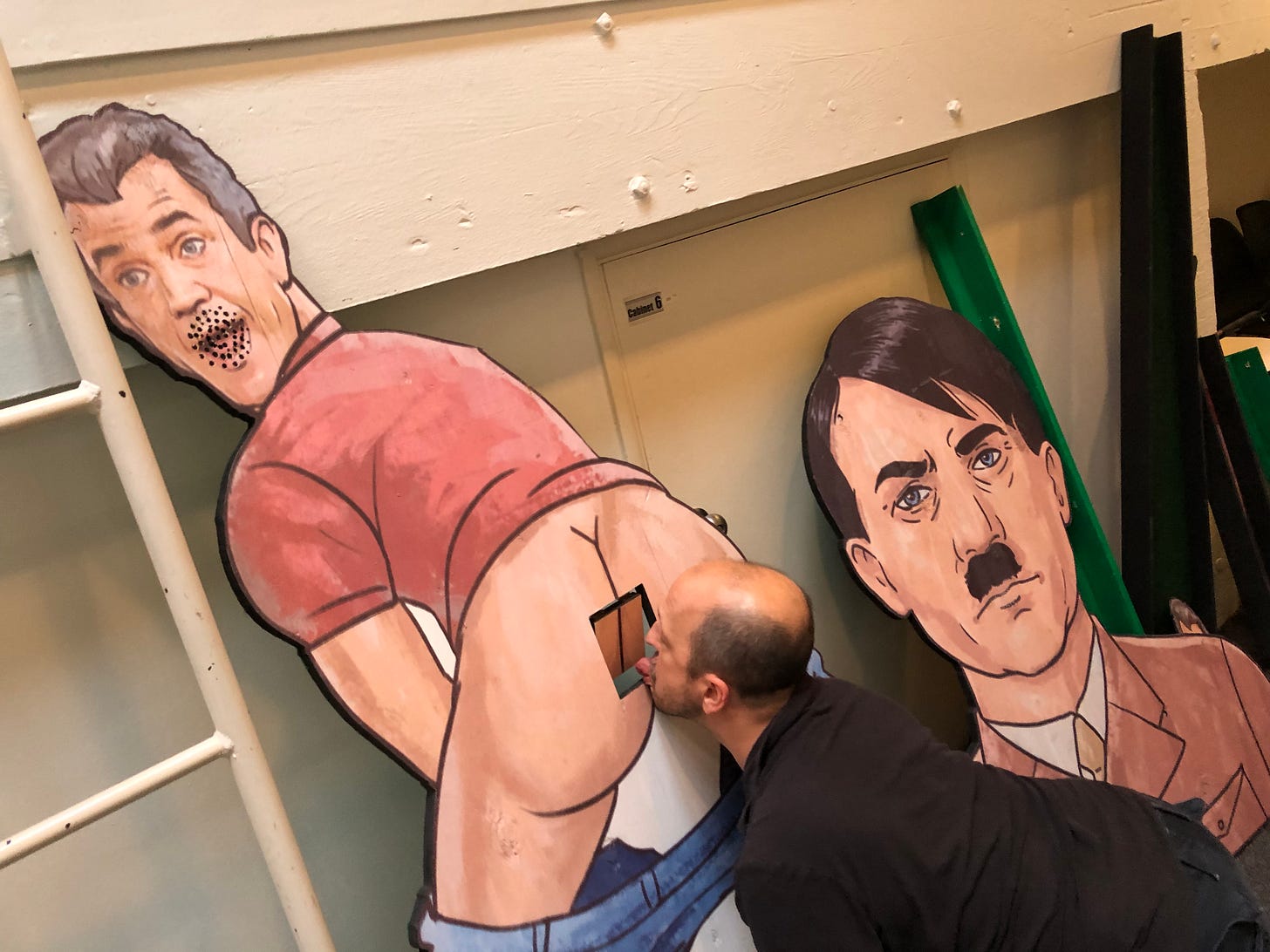
CH: Does any of your evolution, if we want to call it that, come from realizing you didn’t gain enough from the risks you took to keep taking them? Something like, say, The Interview. I suppose, I’m going back to that lesson my father taught me. I know at 48, I can’t help but feel like a lot of the riskier moves I made earlier in my career didn’t get me any closer to becoming the artist I really wanted to be or, say, get me the artistic credibility I hoped to claim for myself. They now feel more like hits I invited and I might even be in a better professional – and emotional – space had I made different calls.
DS: Taking risks, being provocative or, forgive me, “edgy”, is what I’ve long been known for. When people have come looking for me, that’s one of the main stylistic qualities they’re shopping for. So, historically, there has been reward for my risk-taking. But that’s changing – at least in my own head. While I’ve been – allegedly – “evolving”, culture has also been changing, and at a particularly accelerated pace in the past 8 years. And when I look back at work I did prior to 2017, I’m often a little startled or uncomfortable with the tone of my own stuff – it already feels out of sync with current social mores, and even my own sensibilities. So now, when people say they want risky and provocative material, I don’t find that as easy to navigate as I used to.
CH: Stand-up seems especially perilous right now. How does what’s happening in comedy there differ in your mind from, say, sitcom work?




